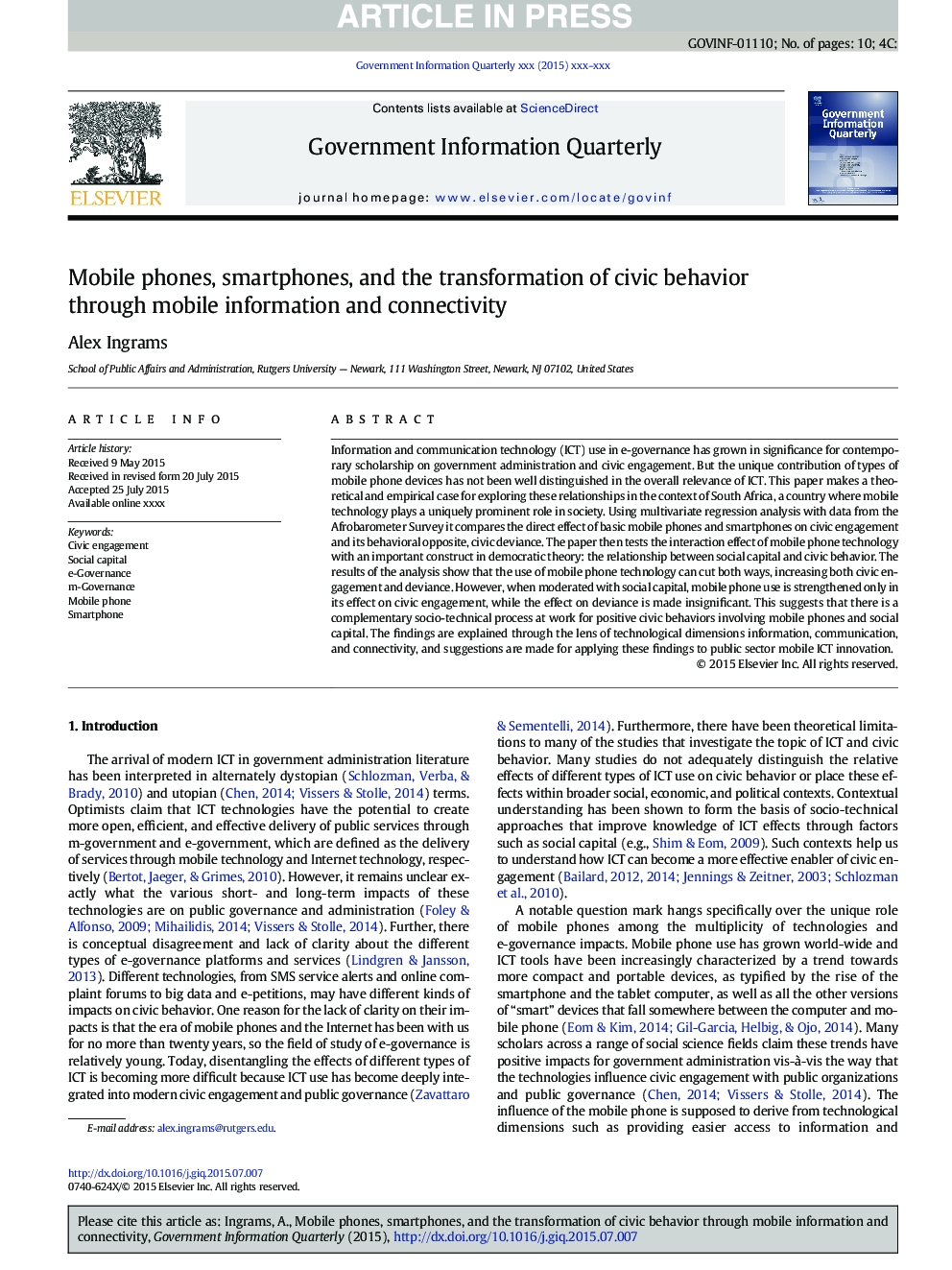| Article ID | Journal | Published Year | Pages | File Type |
|---|---|---|---|---|
| 10495628 | Government Information Quarterly | 2015 | 10 Pages |
Abstract
Information and communication technology (ICT) use in e-governance has grown in significance for contemporary scholarship on government administration and civic engagement. But the unique contribution of types of mobile phone devices has not been well distinguished in the overall relevance of ICT. This paper makes a theoretical and empirical case for exploring these relationships in the context of South Africa, a country where mobile technology plays a uniquely prominent role in society. Using multivariate regression analysis with data from the Afrobarometer Survey it compares the direct effect of basic mobile phones and smartphones on civic engagement and its behavioral opposite, civic deviance. The paper then tests the interaction effect of mobile phone technology with an important construct in democratic theory: the relationship between social capital and civic behavior. The results of the analysis show that the use of mobile phone technology can cut both ways, increasing both civic engagement and deviance. However, when moderated with social capital, mobile phone use is strengthened only in its effect on civic engagement, while the effect on deviance is made insignificant. This suggests that there is a complementary socio-technical process at work for positive civic behaviors involving mobile phones and social capital. The findings are explained through the lens of technological dimensions information, communication, and connectivity, and suggestions are made for applying these findings to public sector mobile ICT innovation.
Related Topics
Social Sciences and Humanities
Business, Management and Accounting
Business, Management and Accounting (General)
Authors
Alex Ingrams,
